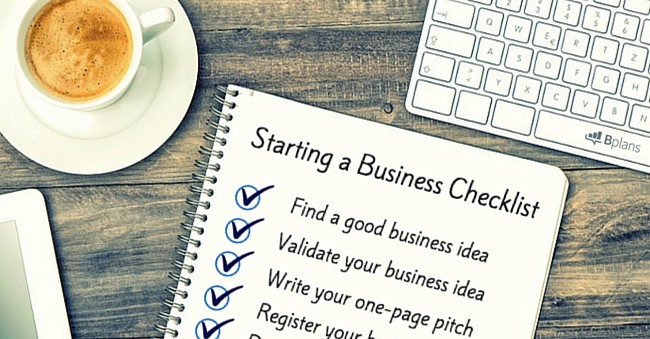Things to Analyze Before the Business Setup
“Business is not about money. It’s about making dreams come true for others and for you.”
You may be thinking of starting a new business, or you may be looking to buy an established business. Perhaps you’ve decided to turn your hobby into a business or to become an independent contractor. It is essential to understand the differences between a business and a hobby, and decide if you are running a business for tax, legal and insurance purposes. Owning a business can involve a lifestyle change as well as large financial commitment. Analysis can help you anticipate any challenges you may face and help you overcome them. We’ve included key areas to help you in thinking about the business you’d like to start, the planning process and identifying how your product or service will differ from those of other businesses in the marketplace.If you’re thinking about taking the plunge and starting a business of your own.
There are some key steps you need to take first.
Business Plan.
Just because you build it or sell it doesn’t necessarily mean anyone will buy it. The first essential step is to research your potential market. Who needs what you are offering? Is there space for your product or service in the market or is the market saturated? Is the market national? Can you define your ideal customers? These are all questions that need to be answered before you even consider starting a business. Too many entrepreneurs have found out the hard way that there were not enough market shares for them to capture. Others have realized that their target market audience was far too limited to make their business work. Researching all aspects of your business idea involves gathering, analysing and evaluating information. This will help you define how you will meet the goals you’ve outlined in your plan.
Raising capital.
You can’t start a business without capital. Determine what you have, what you will need and how you will go about getting it. If you plan to seek investor funding or financing, start writing a business plan and practice your pitch. Research the costs associated with your business. Know how much money you’ll need and decide where it could come from. Furthers, you can ask friends or family if they may be willing to help or you can look into getting a bank loan or seek out an investor. You should also look into what business grants are available they’re hard to come by but brilliant if you manage to get one. If you can’t secure the funding you need to launch your master plan, start small and prove the business works then can attain money from financial institution or investors with more evidence.
Self-visualization.
A creative person may be more suited to an independent business where there is more room to give you the opportunity to test and implement ideas. A systematic, scheduled person with a strong management background may bloom in the franchise environment, eventually operating multiple outlets with different managers handling the day-to-day operations
Ask yourself with these questions,
Why are you starting a business?
What are your business and personal goals?
What are your skills?
What income do you need to generate?
What are the advantages and disadvantages of starting your own business?
How long do you plan to run a business?
Strengths and weakness.
When starting a new business, it sometimes helps to look at the potential strengths and weaknesses of the company. Even though most start-ups tend to be smaller at first, this does provide them with some benefits that larger businesses do not enjoy. At the same time, start-up businesses have a few weaknesses of their own to deal with.
Nature of product or service.
This knowledge is essential to any business, whether online, home-based or otherwise. Without a good idea of what product or service you’ll offer, it can be very hard to move forward with planning and marketing your business.Your product or service will influence your business structure too. Depending on what you market or sell, will you only do business online, or will you also have an office space or store to run as well? This can have an impact on your business in terms of staffing, storage space, and rent costs. Before you start a business, find out if people are interested in buying your products or services. Find out who your competitors are and whether the market can sustain your business.Conduct some research to see whether your idea is really achievable. This will involve gathering, analysing and evaluating information to formulate your business goals. Finding current industry statistics, sales trends and speaking with other business owners in the industry is often a good place to begin.
Business attorney.
You don’t necessarily need to have an attorney on a retainer, but you’ll want to hire an attorney experienced with new businesses to help you get started. Your attorney can advise you about such things as drafting contracts, reviewing your lease and determining the right business structure.
Business name.
It may seem obvious and simple, but the name is how your business will be known to the world. The right name says a lot about your company. Make a list of potential names and narrow the list down to the one that best describes your company in a few words, while being catchy, easy to remember, easy to pronounce and easy to spell. You should also consider how it will translate to a web domain name. You’ll also need to do research to see if there are a similar domain names.
Licence and permissions.
Along with a business license, you may need to get additional licenses depending on the type of business and local laws. Many professionals, such as contractors and real estate agents, need to be licensed in the states in which they work. Additionally, you may need licenses to manufacture and/or sell specific products such as liquor, firearms or even lottery tickets. Research all licenses applicable in your county and your state. It’s also extremely important to know the zoning laws before you open a business. Don’t assume the zoning laws don’t apply to you. You can get information on zoning from your local county clerk’s office.
Conclusion
Starting a business can be very exciting. But it’s essential to do your homework, and take measured, accurate steps. Start small and take accumulative steps one day at a time.







